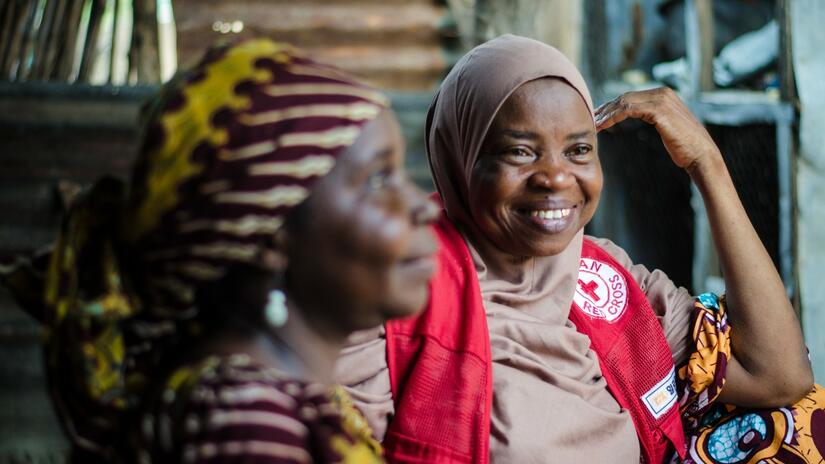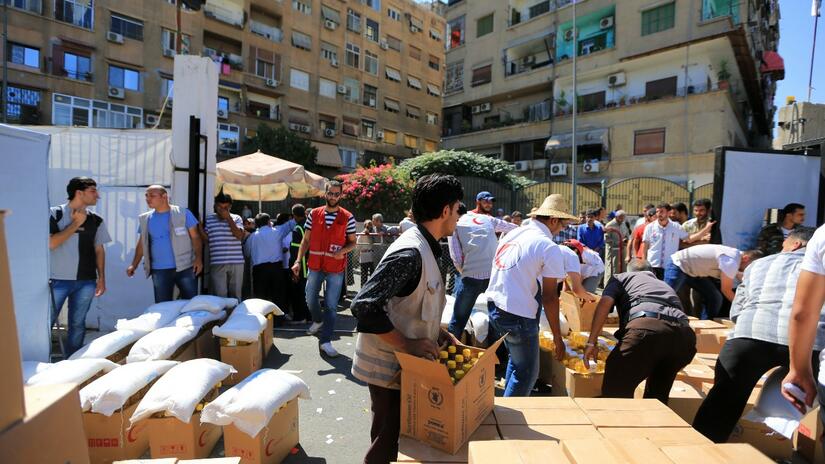Localization
Local humanitarian actors are the first to respond when disasters strike and often have access to areas that international actors do not. Their presence within communities before, during, and after crises means they are generally best placed to link immediate response efforts to longer term resilience-building, preparedness and recovery.
What do we mean by localization?
Localization means increasing international investment and respect for the role of local actors, with the goal of increasing the reach, effectiveness and accountability of humanitarian action.
It is also a way of re-thinking the humanitarian sector from the ground up—recognizing that the overwhelming majority of humanitarian assistance is already provided by local actors.
Localization has been at the core of the IFRC’s working model since we were created in 1919. Our vision then and now was a network of local organizations, Red Cross and Red Crescent Societies, that help each other to be as effective as possible and stand with each other in the face of overwhelming crises—all supported by the IFRC Secretariat.
Our call to action: invest in local humanitarians

A woman speaks to the Nigerian Red Cross divisional secretary of Song, Nigeria about her family escaping conflict and the new livelihood she has set up using cash assistance
Photo: IFRC/Corrie Butler
Often when people hear the word ‘humanitarian’ they imagine a globe-trotting foreigner swooping in to a country affected by crisis and saving the day.
But this image is far from reality. Local humanitarians – such as Red Cross and Red Crescent volunteers – are the ones actually delivering most humanitarian assistance, often invisibly. Yet, the overwhelming bulk of international investment, attention and authority still flows to international organizations.
In 2016, a number of major donors and humanitarian organizations made important commitments on localization as part of the Grand Bargain.
The Grand Bargain 2.0, launched in 2021, goes even further and commits to prioritizing ‘greater support for the leadership, delivery and capacity of local responders and the participation of affected communities in addressing humanitarian needs.’
How can this be achieved?
Guidance documents
Research reports
What should local actors do?

Syrian Arab Red Crescent volunteers distribute relief supplies to communities in 2013
Photo: IFRC/Ibrahim Malla
It is equally important that local actors take responsibility to strengthen their own capacity and preparedness to lead. This includes governments developing and implementing effective disaster laws, policies and plans that underpin all aspects of disaster risk management.
Local actors should proactively propose themselves as partners for in-country coordination leadership roles and in global fora and consortia. They should increase their localization advocacy efforts to funding partners, donors and intermediaries around equitable partnership. More importantly, local actors should ensure robust stewardship and risk management of donor resources.
Get involved
Would you like to share your views and join us in working toward a more localized humanitarian eco-system? If so, click here to engage with us.
